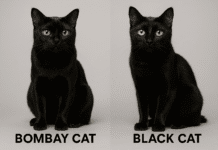Last Updated on February 9, 2025 by Bisma Sehar
As a recruiter, we understand your urge to find the best possible candidate for the position you are recruiting for. Thanks to the vast candidate market, you are bound to get at least a few applications, but the more you attract candidates, the more chances are to get stuck in the pool of useless resumes.
Screening through many such CVs, it is evident that recruiters would get excited as they find the one that truly fits their ideal candidate persona. In the shade of this excitement, we can already sense them messing up their outreach strategies which serves nothing but repels the good candidates away.
No recruiter would love losing their precious “future employees” because of the lousy habit they never noticed. So, here we present seven types of recruiters with one annoying habit each.
Mind that the types mentioned in the article are not for bashing the recruiters. Instead, you must use them for self-analysis and improvise your recruiting strategies so you won’t lose any good candidates in your next hiring cycle.
Table of Contents
7 Types of “Annoying” Recruiters
1. The Secretive Ones
In certain circumstances, recruiters are bound to keep some information confidential, but there are certain things candidates will want to know, like:
- Company’s name: Not revealing the company’s name will cause make the candidate suspicious and create a communication barrier between you both. They will wonder if you’re secretly sacking someone, which is definitely not great for your reputation.
- Salary: Candidates often don’t believe in job advertisements regarding salary packages. It is better, to be honest about benefits and compensation terms instead of wasting your candidates’ time.
- Job Specifications: In job advertisements, candidates often hear phrases like “Responsibilities may vary,” which causes suspicion. If you provide false or unclear information to candidates, they will leave.
2. “The Working Hour” Freaks
Every recruiter is interested in hiring an experienced candidate. In most cases, such candidates are already working somewhere and need a lot of persuasions and offers to tempt them to change their job or company.
The worst mistake a recruiter makes while approaching working candidates is calling them during working hours.
Here are a few obvious reasons why calling candidates during their working hours is a mistake:
- They don’t want rumors spreading in their current company about leaving before they are even hired.
- Obviously, they aren’t sitting ideal at their workplace, so they will probably ignore your messages or calls.
- There comes a sense of guilt when they talk to a recruiter while already working for another company.
Most recruiters think that if the candidate is not replying to them during working hours, they are not committed, but that’s not the case, and it’s your responsibility to understand.
Calling candidates after work or during lunch breaks, if necessary, is always better, and it can’t be postponed till the weekend.
3. “Too Busy to Give Feedback” Types
Not receiving feedback from the recruiter’s end, no follow-ups, or lack of engagement is the most common complaint from candidates.
Feedbacks help candidates analyze their weak points so they know where they went wrong and can improve next time.
Recruiters must maintain regular contact with the candidates who are still going through the evaluation process. You must keep them updated about their application status, even if it is about why the process is taking long.
If a candidate is attending an interview, they are already making an effort and are interested in working with you. Providing them detailed feedback can help you add them to your pipeline.
Remember that always giving them reasons for delay creates trust issues, and candidates lose enthusiasm for the role. You must invest in good recruitment software (if you’re struggling to choose one then here’s a hint- Recruit CRM is one of the best bullhorn alternatives) and other tools to quicken your hiring process.
4. The “Non-Creative” Ones
Recruitment is more of a technical profession where a recruiter follows specific steps to hire a candidate, which somehow restricts creativity. But still, recruiters can be most creative in their application process.
Application forms are more of a hassle when it asks the same thing as that in the resume and is too lengthy. Candidates often drop such applications in the middle or send a messed-up form, no matter how interested they are in the job.
Gamification is the best way to be creative in the application or assessment stage. Instead of asking candidates to upload their resumes, ask them to play a game with a bunch of interesting questions that showcase their skills.
Some advantages of gamification are:
- Candidates who play the game or attend quizzes are the committed ones.
- You can analyze candidates’ skills better even if they don’t have any working experience.
- It helps improve candidate engagement.
- It can help you build a diversified talent pool.
- It reduces time to hire and improves productivity.
5. The One Who Takes Candidates’ Time for Granted
Sometimes even the unsuitable candidates pass through the pre-screening stage and are invited for the interview, but within a moment, it becomes apparent that they were never the right fit for the role. This not only gives hope to the job seekers but wastes their and your time too.
It happens because of the sloppy screening process or poorly written job descriptions. To avoid such situations, recruiters must employ a suitable Applicant Tracking System and screening tools like resume parsers. It saves time and boosts the overall productivity of the process.
Read more: How does Behavioral Competency Helps in Judging a Person?
6. Uselessly Inquisitive Ones
These are the curious recruiters with endless questions ready to ask candidates that are primarily repetitive and baseless. There was a time when big companies like Google and Apple started asking weird questions to judge candidates, but thankfully that craze is over now.
Here are some examples of questions you should stop asking the candidates:
- What is your biggest weakness? You can not expect candidates to know their real weakness, and even if they know it, they aren’t going to tell you- “I leave jobs very often.”
- Where do you want to see yourself in the next five to ten years? If you keep asking such questions, you will get answers that are already on the web. Candidates often manipulate them a bit and give the same answers.
- Why do you wish to work for our company? A lot of times, candidates don’t specifically want to work with you. They just need a job or want to escape their previous job. Asking them such questions is a bit awkward.
7. “I Only Saw Good in You At First” Kinds
“I believe you are perfect for the x job role.”
In nearly all the outreach messages, this statement is common. Recruiters reach out to candidates they know nothing about and call them “perfect” and the next day reject them, reasoning that they are not the right fit for the role.
It puts off the candidates’ mood who actually found the particular post interesting. Everything becomes annoying when looked back, like how an overly enthusiastic recruiter convinced you to apply by saying something that even you didn’t know about yourself- “perfect” and more annoying when they reject their so-called “perfect” candidate.
Read More: Dangers of not cleaning dryer vent properly
Why Should You Care?
So, the main question is, Why should you care if your job candidate finds you annoying? After all, candidates are the headaches too.
Here are a few reasons to treat your candidates better regardless of how they are:
- The candidate who is not a good fit for the current job role may prove helpful in the future. Keeping contact with them will help you build a diversified talent pool.
- You are responsible for maintaining your employer’s brand. One negative comment on the web can ruin your agency’s reputation.
- Candidates are the future employees of the company. Treating them poorly can damage your client’s credibility and market value.
- Your timeliness matters. After spending so much time and resources in the pre-evaluation stage, it is your loss to lose good candidates.
Whether you are an internal or agency recruiter, now is the time to ditch these bad habits if you fall under any of the seven categories mentioned above.
Remember, the success of your recruitment process significantly depends on your candidate’s experience. So try to make it as good as possible.
Read More: What Are the Distinct Features of a Boutique Hotel?












